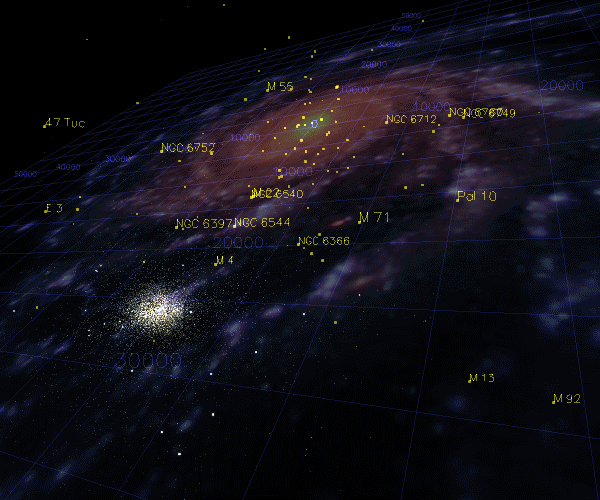I have
always had a passion for mathematics. The things that I felt were complicated
encouraged me to learn more about the subject. My freshmen year of high
school I was placed in advanced geometry which allowed me to complete
college level Calculus in high school. I then decided to pursue my educational
career at Jarvis Christian College majoring in the education of Mathematics.
During the course of my sophomore
year in college I had the opportunity to take an Astronomy class. The
professor, Dr. Ignatius Okafor, taught us many things about the planets
and the universe. I had a chance to go and visit the school planetarium
and watch the orbit of the moon and stars around the earth. Our requirements
for the class included completing research on the planets and presenting
them to the class. Through this project I developed a curiosity for the
subject, and wondered if there was a way to learn more about it. Dr. Ignatius
Okafor then introduced me to the National Science Program that was offered
at the college. I joined this program the following spring becoming a
National Science Foundation Scholar.
The National Science Foundation
is an organization for mathematics, Science, and Computer Science majors.
Through this program I had an opportunity to do research on Coronal Mass
Ejections. With Dr. Ignatius Okafor as my advisor he encouraged me to
read and explore life on my own. In my research I learned that the solar
flares from the sun could one day be the cause of the destruction of mass
communication. This hypothesis had sparked my interest. I believe in the
future with my college experience and mathematical skills, that while
teaching, I could pursue a masters as well as a career in aeronautical
engineering.
Although research is completed
throughout the year with the NSF program, we are encouraged to find summer
internships in our field to broaden our skills in that area. Dr. Ignatius
Okafor introduced me to many internship opportunities and told me that
I should look into them. This Undergrauduate Research Experience in Ocean
Marine Science internship caught my eye because of the use of remote sensing;
to learn how to collect data from a satellite would be exactly what I
needed to warn humanity of the upcoming disasters.
Through this Undergraduate Research
Experience in Ocean Marine Science I have gained knowledge of remote sensing
to conduct research on Ice Sheets. Dr. Terry Hughes and Dr. Malcolm LeCompte
taught us various methods other scientists have made to calculate Antarctic's
Ice Sheet. Dr. Terry Hughes then introduced us to his simpler version
of ice sheet modeling. Our project consists of applying Dr. Hughes' first
order approach to higher model approaches in order to calculate the progression
of Antarctic's Ice Sheets. This can be done by calculating the floating
fraction, Phi. By evaluating the speed of the ice and how fast its melting
we can better understand the dynamic variations in ice sheet and ice stream
behavior resulting from changes in accumalation and ablation rates that
may be consequences of Global climate warming. With my newly developed
skills in the computer program Arc GIS and modeling I can demonstrate
the intensity of the mass ejections through Arc map and holistic modeling
to give humanity a full understanding of what really about to take place.
I desire to continue my education at any prestigious institution that
will allow me to pursue a masters degree in areonautical engineering.
